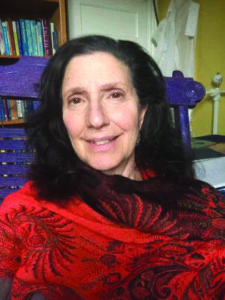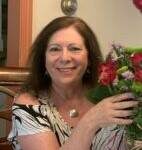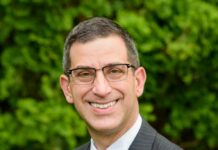
Rabbi Tsurah August
Parshat Vayigash
I dedicate this d’var to my brother Ross David London, Reuven Dovid ben Shayna Batya V’Zvi Hirsch, who died last April, and with whom I shared so many tears.
“Somebody’s going to end up crying!” my father would warn as my brothers and I wrestled on the living room floor. That someone was always me, and I was ashamed. To cry was a sign of weakness, even for a little girl. Tears needed to be stopped up, hidden and turned into a smile.
Tears were dangerous. But I cried anyway.
So many tears, hidden and shared.
There is a poem by Adela Karliner, about the blessing of tears. It speaks of how tears connect us. So human. A gift of our humanity. When our emotions are just too vast for words, we have the gift of tears. Tears that connect us to each other, and perhaps to ourselves. Warm, salty streams that come unbidden. Come from a source as ancient as our beginnings in the ocean. Beginnings that connect us to all life on this planet — and beyond to the stars.
Today, I invite tears to reveal their role in this week’s Torah parshah, Vayigash, a story of reconciliation and revelation.
In Vayigash, the word, bacha/weeping/tears, appears at critical moments:
45:-1-2 :
1) Yosef could no longer control himself before all his attendants, and he cried out, “Have everyone withdraw from me!” So there was no one else about when Yosef made himself known to his brothers.
2) His sobs were so loud that the Egyptians could hear, and so the news reached Pharaoh’s palace.
45:14:
With that he embraced his brother Benjamin around the neck and wept, and Benjamin wept on his neck.
I imagine that as a youth, Yosef had hidden his tears; perhaps like me he was ashamed to appear weak and vulnerable. Even after being thrown in the pit by his older brothers, carted away as a captive slave, languishing in prison, living as stranger in a strange land, as a servant, — even in his solitary position as a mighty man, second only to Pharaoh in Egypt, yet an alien — no tears could he publicly shed.
All those years when Yosef was separated from his family — his father, his younger brother, his mother, his older brothers — believing that he will never see them again — did he privately weep? Perhaps. But tears that choked rather than cleansed.
Only now, after revealing who he is, can that ocean of emotions that has been blocked up inside Yosef throughout his life be unleashed, Now, the dam in his heart can break open, his tears can freely flow and he can once more be the son of Jacob, a brother. Yosef is free at last.
The tears connect him with his brothers as no words can. They are a bond that viscerally acknowledges their filial connection to each other. Their shared past. Their blood.
Tears wash away the masks, the fear, the hatred and open the gates to love and life.
I long for those tears now. Tears not exposing weakness, but revealing our hopes and love. Tears that cleanse the wounds, tears that soften the hard protective shells that have built up around our hearts. Tears that free us, like they freed Yosef and his brothers.
I have so many tears in my heart over the current catastrophe. Tears of hurt, anger, frustration, despair, fear, longing and hope and love. But I am not ashamed of my tears. I know my tears are a gift of my humanity.
Perhaps our collective tears will create a river in which we all can cleanse our wounds and free the love, that is the source of all.
Kav HaYashar 93:
“In Heaven there is an angel especially appointed to receive tears. The same angel is also in charge of receiving the prayers of Israel that are accompanied by tears…” (Zohar, 2:245b).
Rabbi Tsurah August provides spiritual support for families and their loved ones throughout the cycle of life, especially in times of great challenge, such as illness, end-of-life and bereavement. She also leads workshops on many aspects of Jewish life. The Board of Rabbis of Greater Philadelphia is proud to provide diverse perspectives on Torah commentary for the Jewish Exponent. The opinions expressed in this column are the author’s own and do not necessarily reflect the view of the Board of Rabbis.





